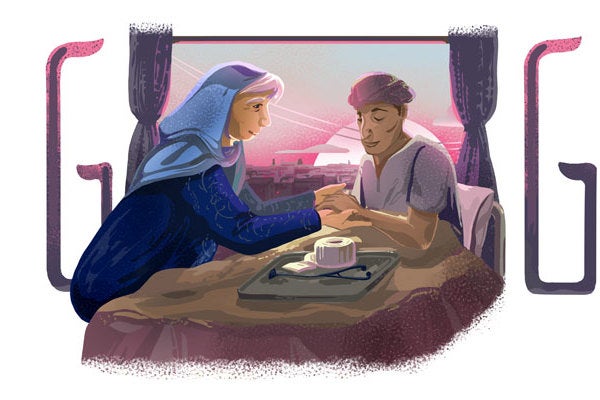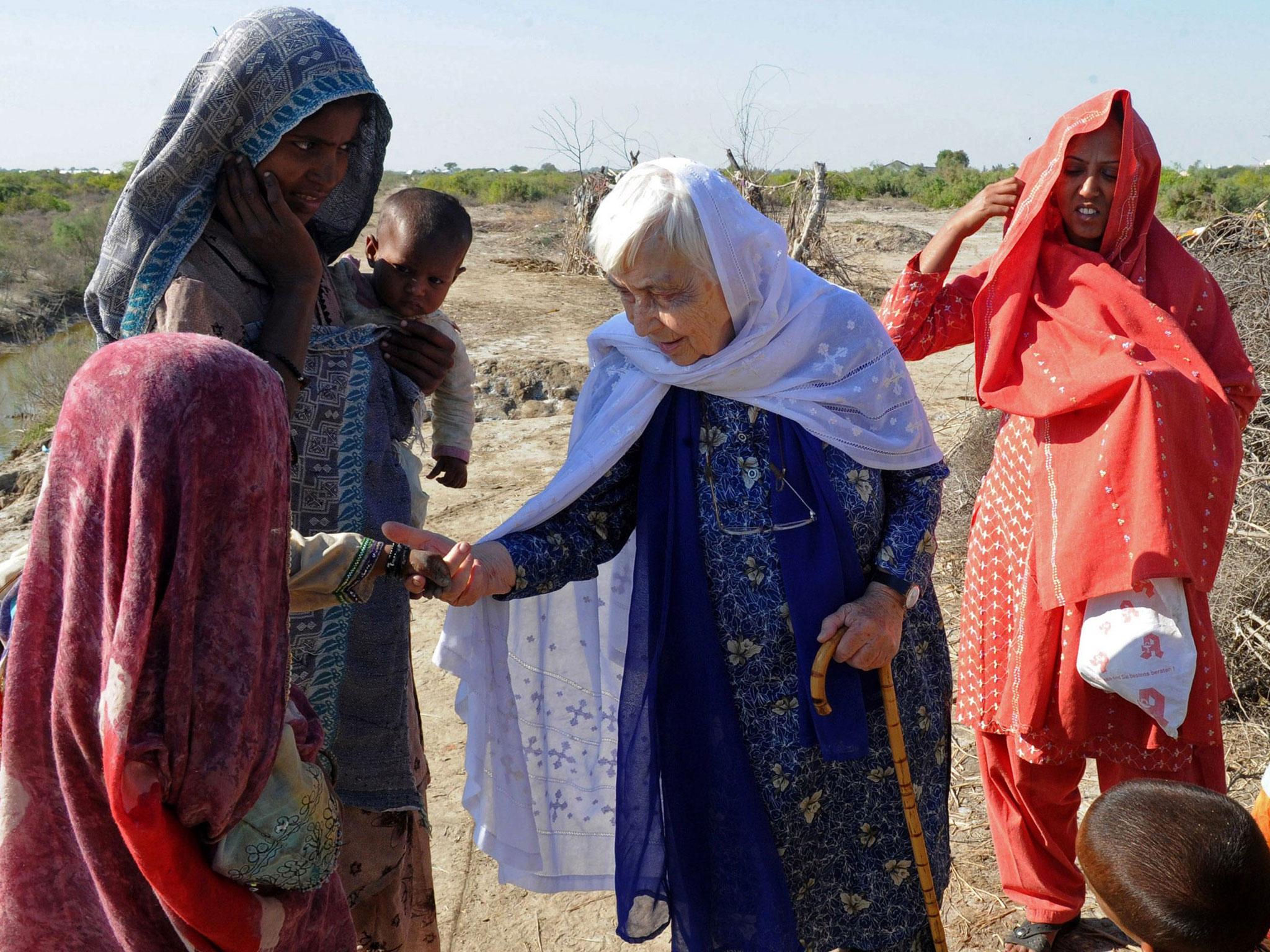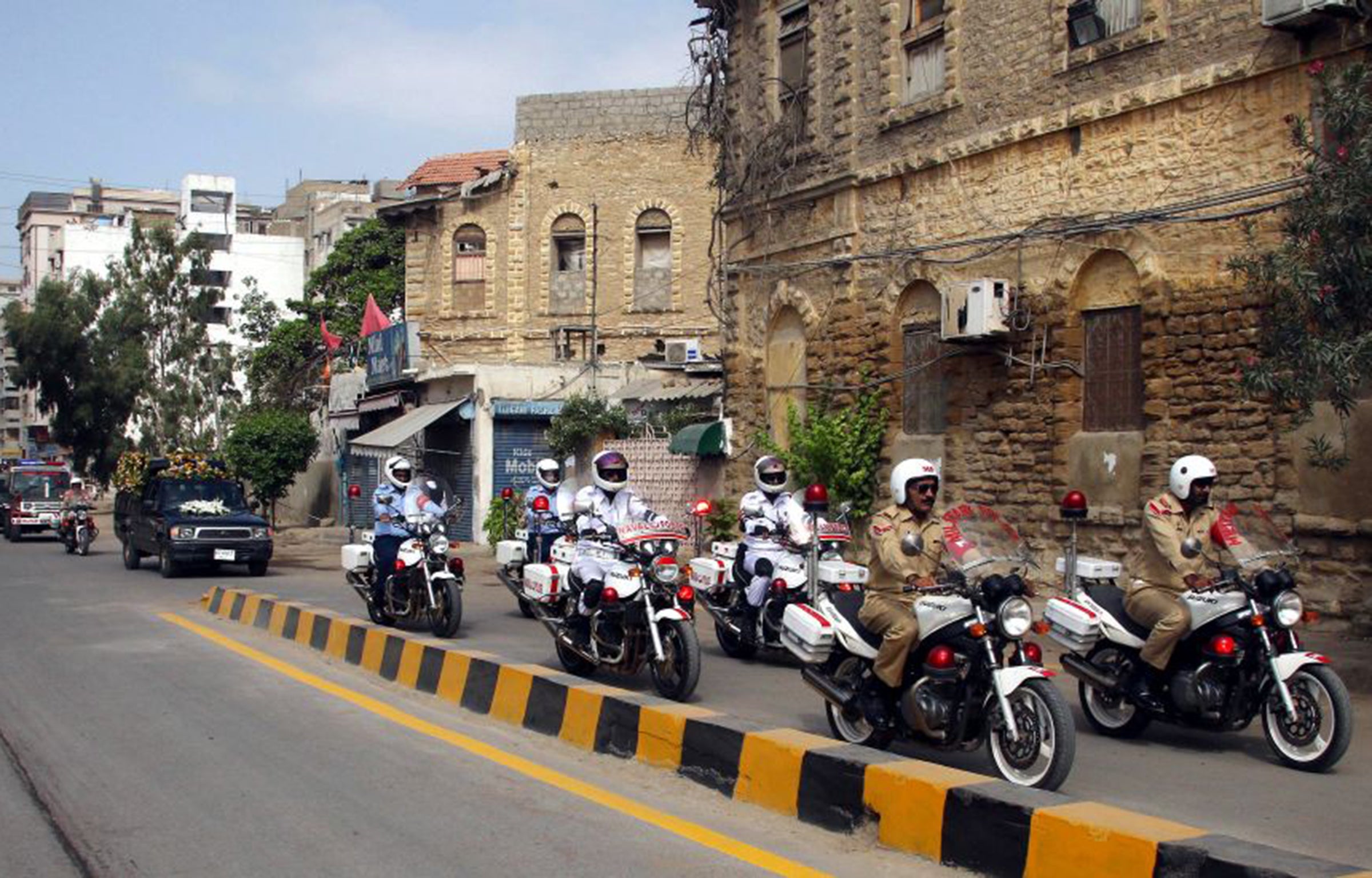A German nun who became known as Pakistan’s own “Mother Teresa”, for her life’s dedication to fighting leprosy, is being honoured in a Google Doodle on what would have been her 90th birthday.
Ruth Pfau, a medical missionary, was born in 1929 in the German city of Leipzig.
She converted to Catholicism in her late twenties before becoming a nun. She spent the rest of her years devoting her life to the care of others till her death in a Karachi hospital aged 87.
Her death, in August 2017, was announced by Pakistan’s prime minister, Shahid Abbasi who paid tribute to Pfau's work healing his people.
“Dr Ruth came to Pakistan here at the dawn of a young nation, looking to make lives better for those afflicted by disease, and in doing so, found herself a home,” Mr Abbasi said at the time of her death. “Her heart was always in Pakistan.”
Afforded the honour of a state funeral, dozens of dignitaries attended and lay floral wreaths on her grave in Karachi.
Dr Pfau’s selfless devotion, in particular her work in Pakistan, is the reason that Google has chosen to celebrate her today.
The tech-giant often honours prominent personalities and marks world events by replacing its standard Google image with sketches it calls “doodles”.
Today’s doodle depicts the nun, who was a medical doctor, in her element – treating a leprosy patient inside a Karachi clinic.

The disease, a bacterial infection is now curable, but has historically led to the ostracisation and stigmatisation of those who suffer from it.
Pakistan’s “Mother Teresa” was born Ruth Katharina Martha Pfau - the fourth of five daughters born to Walter and Martha Pfau in Leipzig, eastern Germany in 1929.
As a teenager, she survived allied bombing during the Second World War although her home was severely damaged.
Her calling to the medical profession was said to be inspired by the death of her baby brother, shortly after the war.
In 1948, at the age of 19, she escaped the then-Soviet Occupation Zone, and went to West Germany where she studied gynaecology at the University of Mainz.
She was then inspired to become a nun after meeting a concentration camp survivor.

And so after completing her medical degree she rejected a marriage proposal, joined a French Roman Catholic order in 1957 and left to go to India the following year.
But a visa issue saw her diverted to Pakistan. This unscheduled stopover ended up becoming the trigger for her life-long devotion to people in the Asian nation affected by leprosy.
She paid a “life-changing visit” to the Marie Adelaide Leprosy Clinic in 1958 where she saw, for the first time, the debilitating effects of the disease.
The patient who made her decide to stay in Pakistan was a leprosy patient similar in age to her.
"I was at this time not yet 30, and he crawled on hands and feet into this dispensary, acting as if this was quite normal, as if someone has to crawl there through that slime and dirt on hands and feet, like a dog,” she told BBC reporter Mark Lobel in 2010.

A couple of years after her first visit, Dr Pfau raised funds to refurbish the leprosy clinic.
She eventually built up a network of more than 150 modern medical centres in the country, including physiotherapy units, workshops to create artificial limbs and built homes for the handicapped.
She also started Pakistan’s first Leprosy Technicians’ course in 1965 whilst educating the public to combat the stigma that was associated with the skin condition.
Thanks, in large part to her efforts, the World Health Organisation deemed leprosy was under control in Pakistan in 1996.







